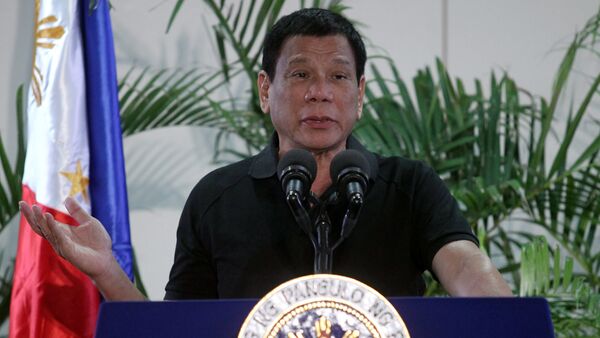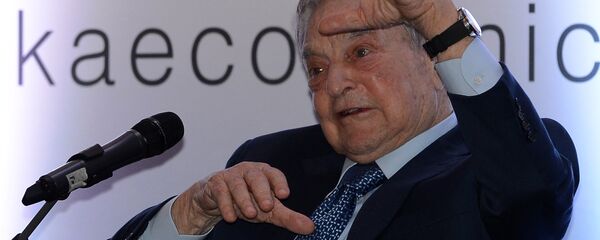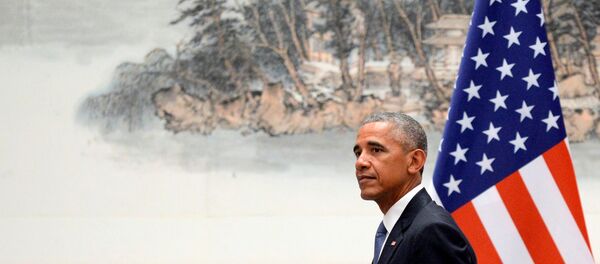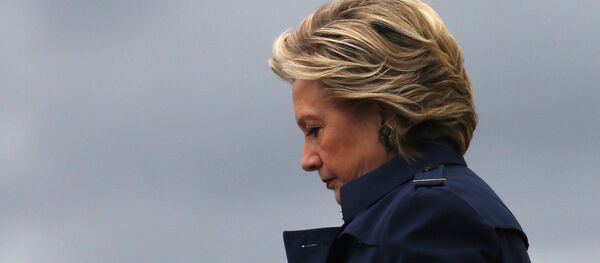On Tuesday, the article entitled "The Limits of Rodrigo Duterte's Anti-Americanism" was published by The Atlantic, an American magazine which covers foreign affairs, politics, and economics.
The author of the opinion piece, US journalist Jon Emont, argues that the Philippine president may face rising public discontent or tough backlash from the Philippines' powerful military and business groups if he continues to drift away from Washington and, most notably, expels the US military from the region.
Emont highlights that "roughly half of the Philippines' middle and upper classes have relatives in the United States," while the US' remittances to the country (around $10 billion a year) remains "a major driver of the Philippines's economy."
Foreign investments into the country have already decreased by 41 percent since last June while the peso fell to a seven-year low against the dollar following Duterte's anti-American comments, he stresses.
In this context, "if Filipinos don't like their country's foreign policy, they can try to change it using avenues unavailable to Iranians," Emont notes.
What the US journalist is hinting at is a Philippine version of the Maidan Revolution of 2014 that has plunged Ukraine into a longstanding political and economic crisis.
However, "far more worrying for Duterte is the prospect that his country's powerful military and business groups, which maintain close ties to the United States, will turn against him," Emont points out.
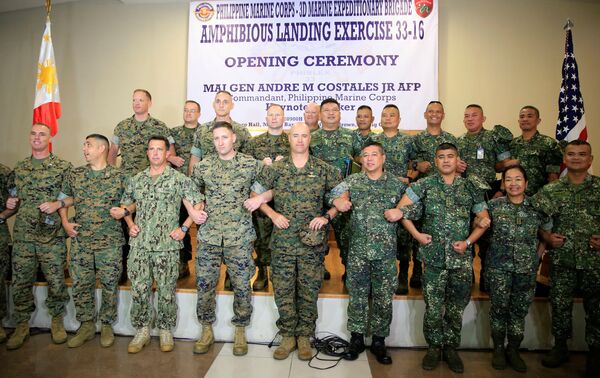
"If Duterte doesn't follow through with his promise to expel the US military from the Philippines, and the economic relationship remains more or less on track, US policy makers may be to block out Duterte's rhetoric," Emont highlights.
Could this be possible blackmail?
On October 26, a Philippine media outlet, ABS-CBN News, quoted the country's Kabayan Party-list Representative Harry Roque, who advised President Duterte to work on getting himself invited to a state visit in the United States "or he may face regime change engineered by the US."
"Unless we pay a state visit to the US,… the US will take steps to remove President Duterte as chief executive, pursuant to the experience related to us by President Erap that he was deposed because he went against President [Bill] Clinton's advice not to proceed with the all-out war [in Mindanao]," Roque said, adding that the US has a long record of deposing foreign leaders.
Commenting on the issue, Mathew Maavak, a doctoral researcher in Risk Foresight at Universiti Teknologi Malaysia (UTM) and a regular Op-ed contributor to China's CCTV, emphasized that Duterte has good reasons for turning his back on the US.
"Rodrigo Duterte may have good reasons to 'separate' his nation from the US orbit and orientate it towards China. The United States regards itself as the 'security guarantor' of the Philippines — a point repeated by the Atlantic article — but one may wonder what that guarantee means to the average Filipino or for that matter to citizens of any state allied to the United States," Maavak told Sputnik.
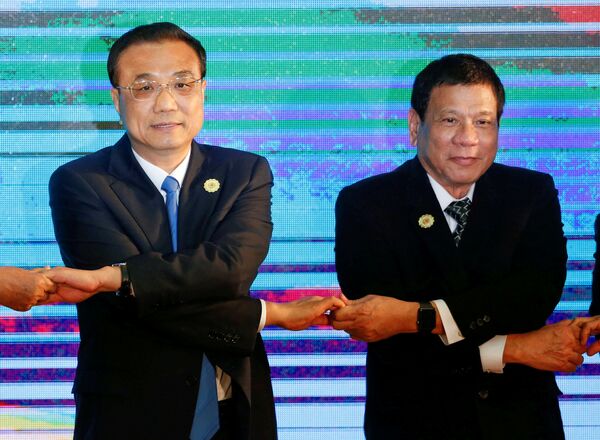
"It is a coincidence worth noting that almost all nations allied under the US security umbrella — sans the hyper-insular South Korea, Japan and Taiwan — face worsening or protracted Islamic militancy problems," the researcher observed, adding that "this may be attributed to the still-lingering policies of former Presidents Carter and Reagan in weaponizing Islam for geopolitical ends."
"The US military presence in the Philippines has not extirpated the Jihadi problem in southern Philippines and the larger Borneo region. In fact, the situation has only got worse," he highlighted.
According to the researcher, this could be one reason behind Duterte's anti-American rhetoric.
On the other hand, "there may be whispered fears in Manila over an eventual, US-guaranteed secession of the Mindanao region," he noted referring to the Muslim separatist rebellion in the region.
"After all, the US has done nothing to reunite Cyprus after the illegal Turkish invasion and occupation of its northern part in 1974. All that talk about NATO territorial integrity and military code of ethics is just plain poppycock if Turkey's recidivist military adventurism is anything to go by," Maavak stressed.
"Furthermore, an alliance with Washington actually means vassalage, restricting independent policy actions among 'allied' nations. Duterte may have had enough of the Philippines' continuing poverty, high crime rates and the lack of solid economic opportunities. A nation cannot catapult itself to the 21st century economy on the back of low-cost call centers," the researcher noted.
That's where China steps in.
"Beijing would be more inclined to invest in hi-tech infrastructural projects in the Philippines and that is what Filipinos actually need more than ever. It cannot afford to be mired in social fallouts arising from high rates of narcotic smuggling and usage — another less discernible phenomenon among nations allied with the United States," Maavak concluded.
The views expressed in this article are solely those of the author and do not necessarily reflect the official position of Sputnik.
